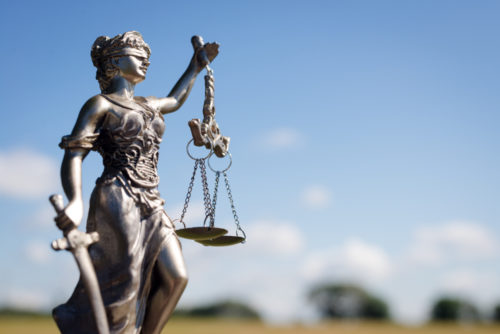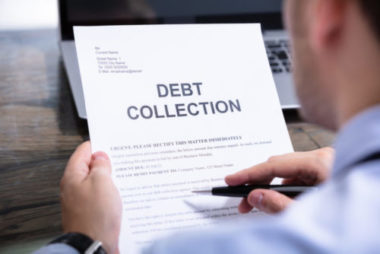Let’s say, you haven’t paid your bills. It may have been so long since you were billed, you forgot they exist. Or, maybe you have had money problems. In any case, it’s now bad enough that the creditor has sued you. Either you didn’t answer the summons, perhaps out of fear, or you showed up and lost in court. Now, there’s a civil judgement against you. This can change what you owe, to whom, and what assets or income is subject to garnishment.
Table of Contents
What Is a Civil Judgement?
A civil judgement is a court’s legal, binding decision following a lawsuit associated with debt. Generally, this results in you having to pay damages to a creditor or lender, and changes the status of your unpaid debt.
Most debt is unsecured, meaning that, unlike mortgages or auto loans, there is no collateral backing the loans. For example, there is nothing backing a credit card debt. If the creditors come calling for you to pay your debt, their recourse is to sue you for the debt, garnishing income or freezing your bank account.
Court Judgement Lien
A court judgement lien is the result of a civil judgement against you. It gives the creditor you owe the right to take possession of your property in order to fulfill your debt to them. It gives them access to your business income, real estate, personal property, and other assets in order to pay the judgement. They may be able to seize your bank account, as well.
How Does a Judgement Get Issued Against You?
A judgement is issued against you as a result of a civil lawsuit over unpaid debts. If you lose the suit, or fail to respond to the summons, the court will find in the creditor or the collector’s favor. It’s important you show up to the court date, as otherwise you will automatically lose. It might be scary, and there’s a chance you could still lose, but it’s still a better chance at winning the court battle than automatically losing.
What Happens After a Judgement is Entered Against You?
Damages Are Owed
The first and most immediate result of the judgement is that you owe damages. That means you still have to pay the bill, but the creditor can take more aggressive actions against you.
The Judgement Goes On Your Credit Report
The judgement becomes a negative mark on your credit report. This will make it harder to get loans, as you have proven yourself untrustworthy in paying back your debts. Worse, it will stay on your report for 7 years.
Laws Change
After a judgement, laws change for collectors. They are allowed to use more aggressive means of collecting the aforementioned damages. These include wage garnishment or taking your property, even if the loan or debt was originally unsecured.
How To Fight a Judgement Against Me
Get a Judgement Reversed
If you did not show up for the court date, there is still a chance you could convince the court to reverse the judgement. Essentially, you are formally filing an appeal with the court to reopen the case. Terms can be altered, or the judgement thrown out entirely. If this happens, be sure to check your credit report, as the negative mark may not be removed. If the judgement is vacated, send a letter to the credit bureaus asking for a deletion.
Settle the Judgement or Debt
You can sometimes settle a contested debt before going to court and avoid the judgement. This involves negotiating with the creditor prior to court, and trying to convince them to take less money than you owe. However, the creditor might be willing to settle the debt. In a pay for delete situation, you may be able to convince the creditor to remove the entry from your credit report, as well. However, in order to settle, you need to have the money to settle with.
Declare Bankruptcy
Declaring bankruptcy can discharge the judgement. After all, you no longer money to pay, so how can the creditors collect if there’s nothing left to collect? This is the final, nuclear option and should be only considered as a last resort. You will take a very large hit to your credit score that will last for 10 years.
In the end, it’s best to consult a lawyer about which option is best for you personally. You may also want to find and fix bad financial habits so you won’t be faced with this situation again.
Image Source: https://depositphotos.com/





